Habitat loss is a massive threat to the future of the orangutan. Orangutans are often slaughtered as land is cleared. Orangutan infants become orphans or victims of illegal pet trade.
Monti was rescued by our friends at International Animal Rescue (IAR) in 2009. Her story is one of survival, resilience, recovery and recently, motherhood. As a baby, Monti was kept as a pet in squalid conditions. She was malnourished and in poor condition when she was rescued and needed round-the-clock care by the team of dedicated vets at the IAR rescue centre in West Kalimantan. After starting infant jungle school, she found it hard to mix with the other orangutans and relied heavily on her keepers for comfort and reassurance. For Monti, this new world must have been very unnerving for her, but little did she know how incredible her journey was about to become.
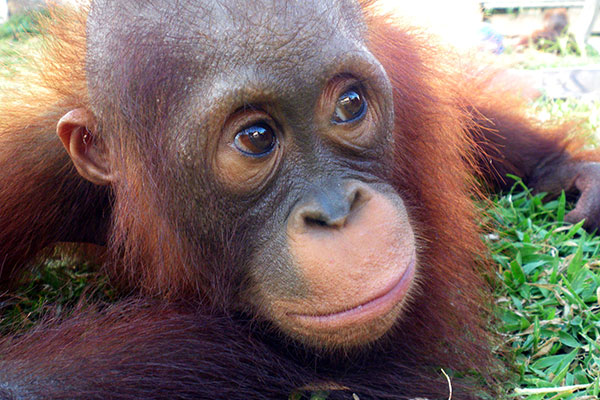
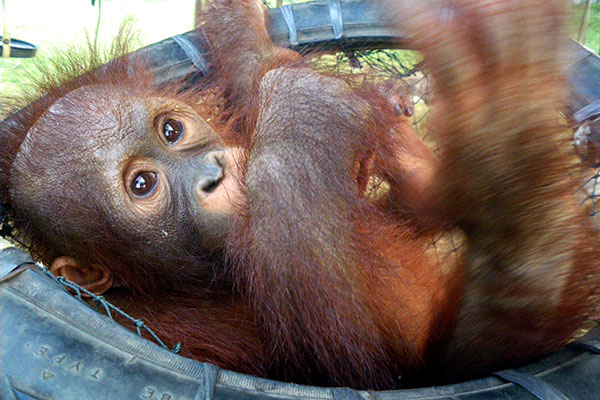
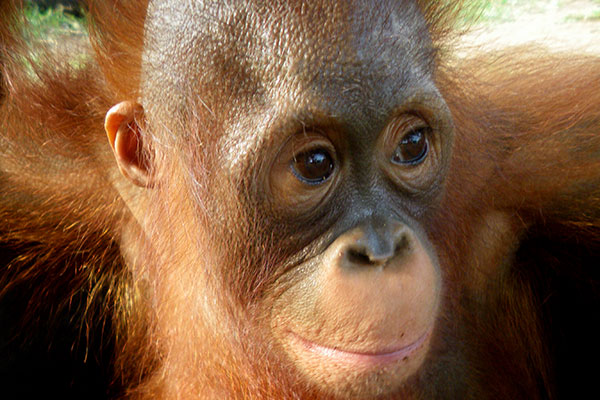
The team at the rescue centre worked tirelessly to teach Monti not only the essential skills needed for survival in the wild, but to also become comfortable around other orangutans. Eventually, everything clicked into place. Monti started to show natural orangutan behaviours and was even teaching the younger orangutans new skills! The team noticed this and decided she would be a fantastic candidate for a new surrogacy program. This program aimed to match older female orangutans with orphaned babies who were in need of extra-special love and care.
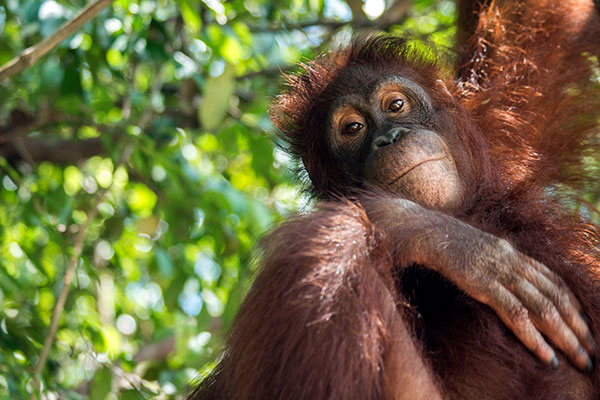
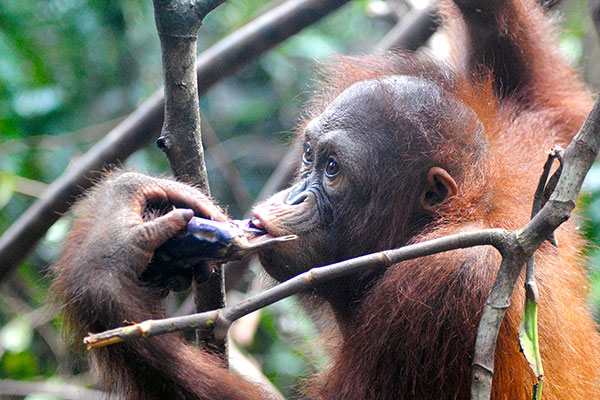
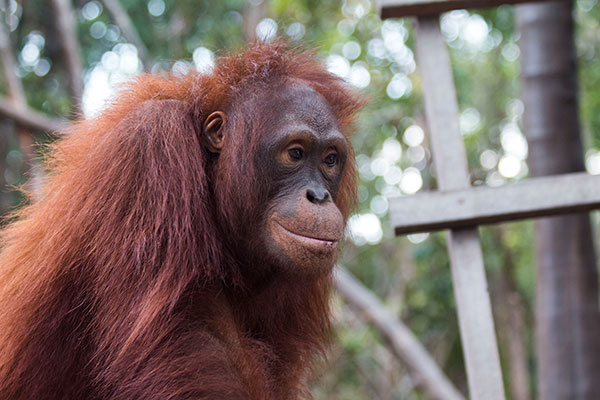
Monti was matched with a young female baby named Anggun, and they quickly developed a close and loving bond. The IAR team watched in amazement as she taught Anggun how to open coconuts and build nests, even allowing Anggun to rest on her belly at night. Anggun learned more vital forest survival skills from Monti when they moved to one of the IAR rehabilitation islands that The Orangutan Project funded.
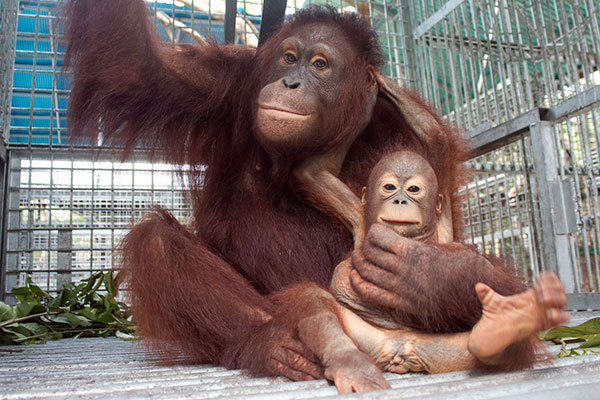
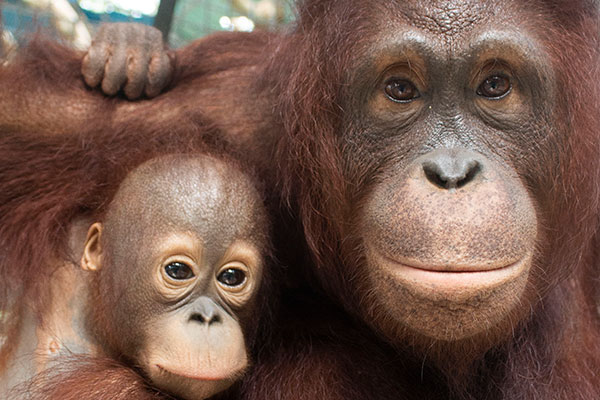

It was eventually decided that Monti and Anggun were suitable to be released together, to start a new life high in the trees of the Indonesian rainforest. On 11 February 2020, Monti and Angunn were released back into the wild, alongside three other orangutans. Words cannot describe how beautiful the moment was when she climbed out of the transport crate, with Anggun clinging to her side, and realised she was free! Just look at how happy they look together.
We sincerely thank all of our supporters, and in particular to Monti’s adopters for helping Monti, and many other captive and displaced orangutans, return to life in the protected wild. What an amazing effort by the IAR team to encourage this foster mother- infant pairing which can now play an important role in the rehabilitation process for many other orangutans. What a baby orangutan needs most in the world is their mother, and Anggun has flourished under the care of the gentle and intelligent Monti.
But there are so many more stolen orangutans, living right now in captivity and they urgently need your help today!
Help Fund Urgent Orangutan Rescues
Your gift will resource urgent orangutan rescue operations, providing orangutans like Monte and little Anggun with a second chance of freedom and happiness.
Monti's freedom in the jungles of West Kalimantan has been made possible with generous support from her adopted parents.
“Thank you to everyone that has made this journey of survival possible. Not only have you given Monti the gift of life, you have also given her the gift of motherhood, something truly special that will always be close to our hearts. We wish Monti and Anggun all the best in their new life in the forest.”
Dr Karmele Sanchez, senior veterinarian, International Animal Rescue
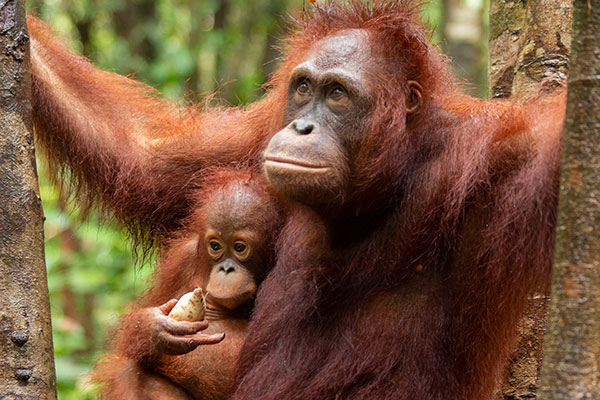
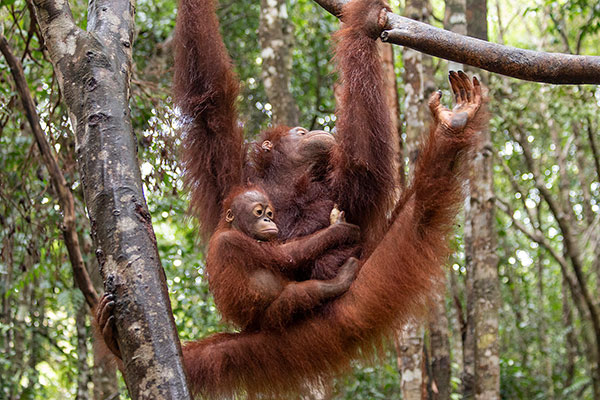
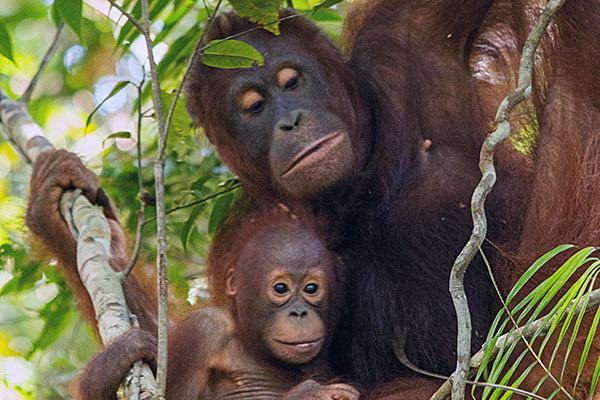
Monti has now reached the ultimate goal of freedom, but there are many orphaned orangutans that desperately need help like Mary, one of the newest arrivals at the Centre for Orangutan Protection (COP) Borneo rescue centre in East Kalimantan.
Share this beautiful story...
More about our Rescue, Release and Rehabilitation programmes
Despite its highest protection status in Indonesia, orangutans are not well protected from crime. Forest clearing to make way for oil palm plantations, mining, agriculture, logging concessions and population expansion has created the greatest threat to the survival of the orangutan. Habitat destruction has decimated orangutan populations over the last decade. The Orangutan Project funds numerous orangutan rescue teams in Sumatra and Borneo that are highly trained and skilled at relocating wild orangutans in high-risk situations into protected forest habitat.
Land clearing creates a myriad of other threats including poaching, illegal possession and the black-market trade. These rescue teams also undertake confiscations of illegally held ‘pet’ orangutans. Sadly, many infant orangutans are kept and sold illegally as pets in Indonesia. This occurs when the mother has been killed – usually because they are considered an ‘agricultural pest’ if they enter oil palm plantations to find food, since so much of their natural habitat and food sources have been destroyed. Infant orangutans are highly traumatised after witnessing the brutal killing of their mothers who they would have been highly dependent on for many years. They are then often kept in deplorable conditions as someone’s pet and fed inappropriate food.
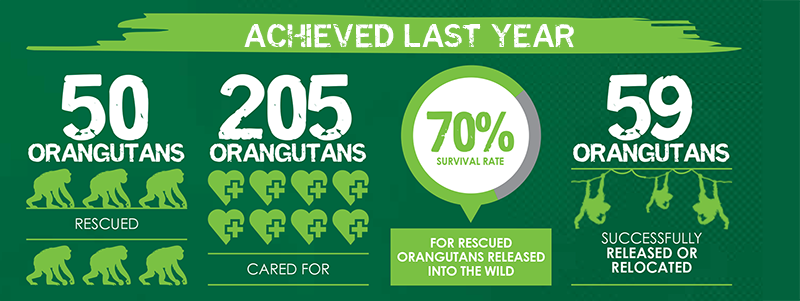
Once these young orangutans are confiscated by rescue teams, they are taken to the appropriate care centre depending on which area they originated from. Here they undergo a full medical check and are treated for any illnesses and parasites. New arrivals undergo a quarantine period before being introduced to other compatible orangutans. It is imperative that orangutans at these care centres are provided with enrichment to keep them mentally and physically stimulated. Orangutans are highly intelligent and spend most of their day in the forest traveling and searching for food. If orangutans are confined and bored this can result in stereotypic and negative behaviours including pacing, hair plucking, rocking and regurgitation of food.
One of the biggest problems faced when reintroducing orangutans to the wild that have spent considerable time in captivity is their inability to be able to recognise available food sources, especially during seasonal variations. Wild orangutans eat hundreds of different plant species and they change their diet according to the season and food availability to survive. Orangutans predominantly feed on high calorie fruits during the fruiting season but must rely on eating other food sources such as leaves, termites and cambium when fruit is scarce.
Young orangutans at the care centres and training release sites are taken out for ‘forest school’ outings where they can develop the skills that they need to survive in the wild including nest building, travelling in the forest canopy and identifying natural food sources. They would normally take years to learn these skills from their mother in the forest, so the rehabilitation journey is a slow process. Orangutans develop at different rates depending on their age, temperament and how long they spent with their mother in the forest.
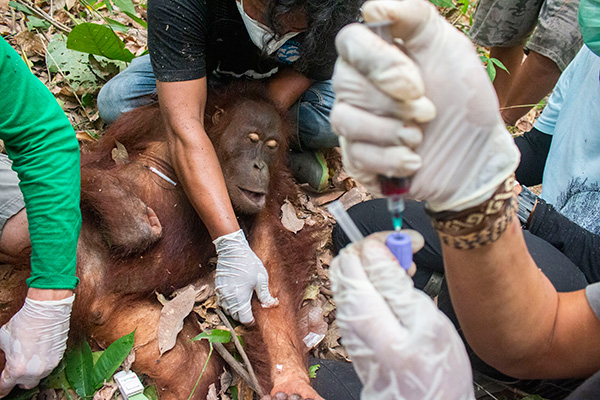
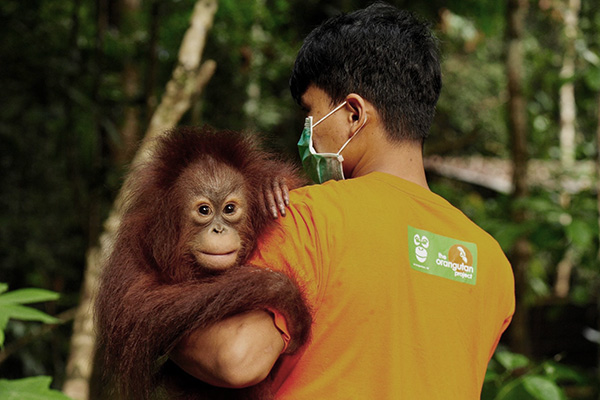
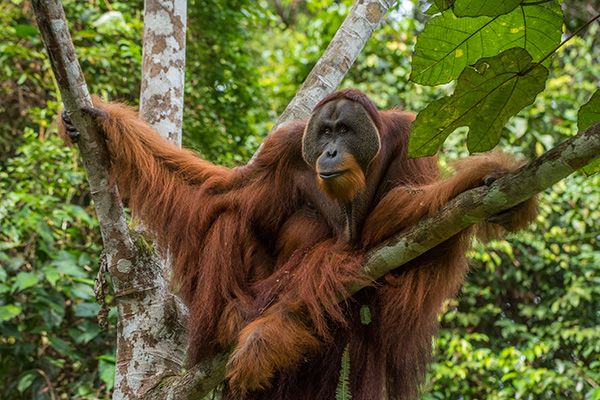
Orangutans are observed closely during forest school by orangutan trainers and their activity patterns of travelling, foraging and resting are closely monitored and recorded. Orangutan trainers also closely observe and record what foods the orangutans are eating. It is very important that orangutans learn to mostly eat fruit during the fruiting season to increase their calorie intake and fat reserves to help them survive during the dry season. Orangutans must also be able to recognise and eat a wide range of other forest foods including flowers, termites, bark and cambium. Young orangutans need to learn how to make a strong and stable nest in the canopy. This can often take a long time to learn since it is quite a complex procedure. Often young orangutans watch and learn how to build nests from other more experienced orangutans at forest school. It is also vital that young orangutans do not come to the ground, especially in Sumatra, since the Sumatran tiger is a natural predator.
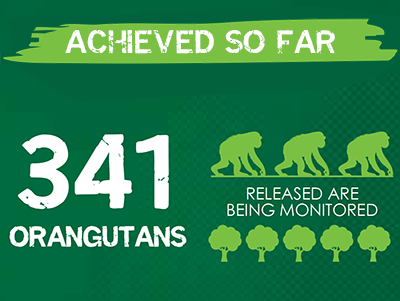
Even after release, orangutans are closely monitored to ensure they are adapting to full-time jungle life. Orangutans at some release sites have a small transponder inserted between their shoulder blades so they can be tracked using telemetry equipment well after their release to check on their progress. This has been a huge development in allowing longer term monitoring and assessment of released orangutans. It also allows the orangutans trainers to reduce the monitoring of the orangutan over time as they adapt to their environment. The Orangutan Project supports the post-release monitoring of orangutans at numerous sites in both Borneo and Sumatra with a particular focus on the newly established Sumatran orangutan population in the Bukit Tigapuluh ecosystem in Sumatra.
Share this beautiful story...
You can change your country here
Got it